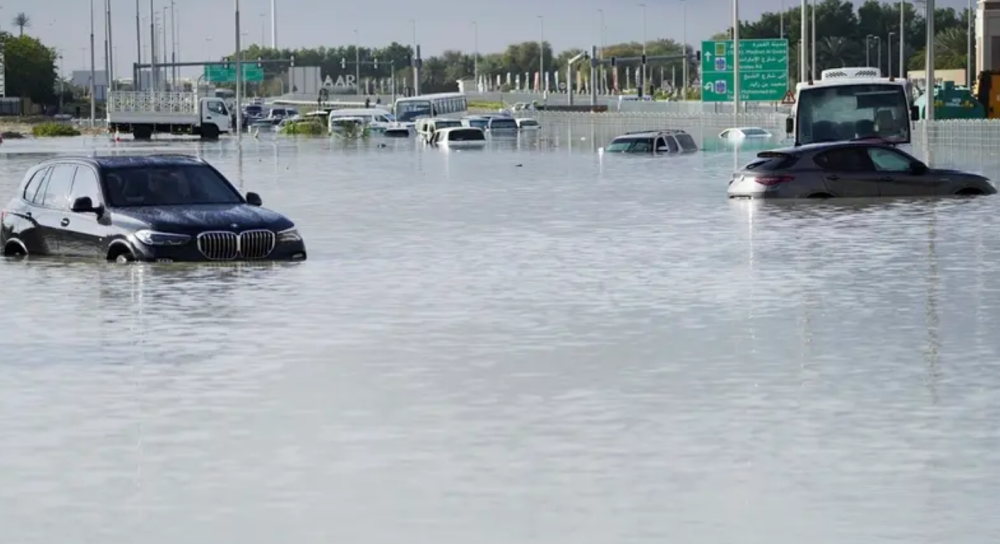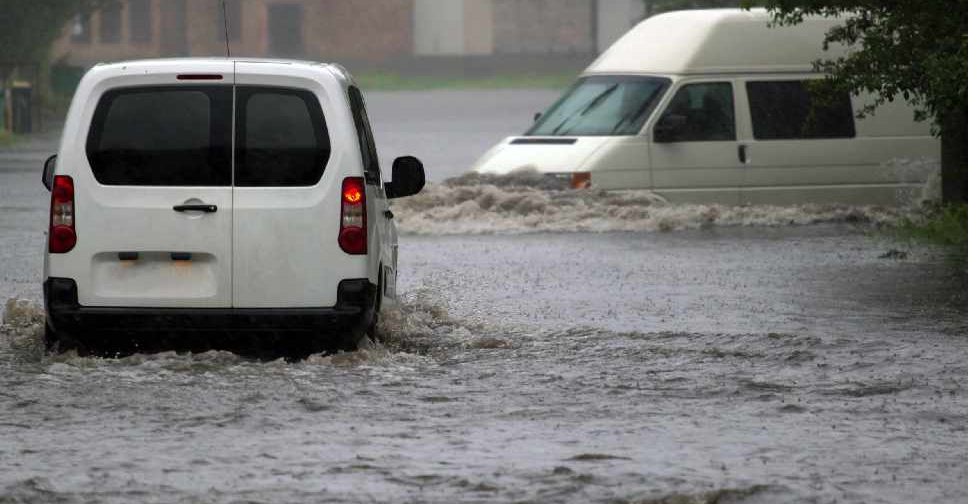
In recent weeks, the glamorous city of Dubai witnessed an unexpected and severe flood that turned streets into rivers and left thousands of vehicles submerged, damaged, or completely destroyed. As heavy rains hit the emirate with little warning, car owners across Dubai faced the harsh aftermath: waterlogged engines, broken electronics, and massive repair bills.
From luxury sedans to budget hatchbacks, the floodwaters spared no vehicles. Social media quickly filled with photos and videos showing submerged Lamborghinis, floating SUVs, and half-sunk taxis. Residents watched helplessly as their prized possessions were either washed away or rendered unusable.

While Dubai is known for its world-class infrastructure, the sudden downpour exposed serious vulnerabilities. Many major roads, underpasses, and parking garages flooded within hours, trapping thousands of cars. In areas like Al Barsha, Jumeirah, and Business Bay, entire parking lots turned into pools.
Speaking to local news outlets, Dubai resident Ahmed Mansoor said,
“I parked my car in an underground parking the night before. By morning, the water had risen to the roof of the garage. My car is a total loss.”
The suddenness of the flood, combined with limited drainage systems, meant that many vehicle owners had no time to move or protect their cars.
Auto experts in the region say the type of car damage due to flooding depends on the water level and how long the vehicle was submerged. Here are the most common issues reported:
Auto garage owner Prakash Jain in Al Quoz said:
“We’ve seen over 300 flood-damaged cars in just two weeks. Some repairs cost more than the value of the car itself.”
Another major issue for residents is dealing with insurance companies. Not all auto insurance plans in Dubai cover flood damage. Many drivers discovered this the hard way.
Several policyholders learned that their “third-party” insurance did not include natural disaster coverage. Even among those with comprehensive coverage, claims are being delayed due to the overwhelming number of cases.
Dubai-based insurance advisor Reem Al Maktoum shared:
“People didn’t expect something like this in the UAE. Many skipped full coverage to save money. Now they face total losses.”
In addition, insurance companies are struggling with long backlogs. Some customers report waiting more than two weeks just for inspections, let alone approval for claims or repairs.
If your car was damaged in the recent Dubai flood, here are some urgent steps to follow:
Beyond personal loss, the flood’s effect on the local car market is significant. With so many damaged or totaled vehicles, car rentals and sales have surged.
Rental companies are witnessing high demand, especially for short-term leases. Some used car dealers are also seeing price increases due to reduced supply.
Meanwhile, environmentalists warn that thousands of flood-damaged vehicles leaking oil, gasoline, and chemicals pose a risk to the region’s fragile desert ecosystem. Proper disposal and recycling will be key in the coming months.

Dubai Municipality and the Roads and Transport Authority (RTA) have pledged to improve flood management systems. Emergency pumps and drainage works are underway, and cleanup operations have been in full swing.
Still, many residents are calling for long-term solutions, including better urban planning, improved water drainage infrastructure, and mandatory flood coverage in all car insurance policies.
Dubai’s recent flood is a wake-up call—not just for car owners but for city planners, insurers, and policymakers. With climate patterns becoming more unpredictable, extreme weather events may no longer be rare in the Gulf.
Until lasting solutions are put in place, residents will need to stay alert, insure wisely, and be prepared for the unexpected. In a city known for its fast cars and luxury lifestyles, a single night of heavy rain has shown just how vulnerable even the strongest machines can be.
Read More:- Deyaar’s Latest Announcement Shakes Up the UAE Property Market
